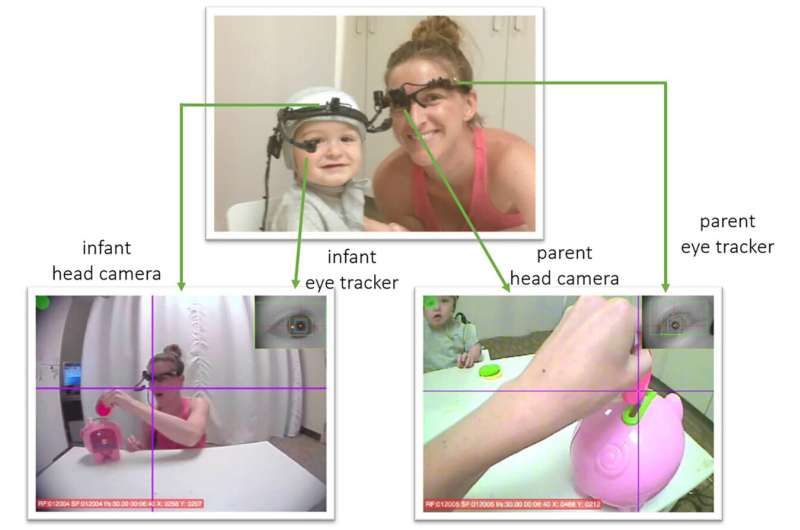This article has been reviewed according to Science X's editorial process and policies. Editors have highlighted the following attributes while ensuring the content's credibility:
fact-checked
trusted source
proofread
New research suggests deaf children interact with parents like their hearing peers

A new study led by a Keele University research team has found that deaf toddlers fitted with cochlear implants interact with their parents just as well as their hearing peers.
The researchers say these findings are important for the ongoing debate about the effects of hearing loss on parent–child interactions and overall development.
Previous studies have shown that the mismatch between the sensory experiences of children with hearing loss and their hearing parents can lead to difficulties in smooth, coordinated interactions. This study, published in the Quarterly Journal of Experimental Psychology, aimed to find out exactly which aspects of parent–child interactions may differ in children with hearing loss, and whether motor skills are an important factor.
Using mobile eye-tracking technology, researchers closely tracked the eye movements, actions, and movements of toddlers with cochlear implants and their parents while they played together in a collaborative game. This method allowed the researchers to zoom in on these interactions at a millisecond timescale, allowing a closer analysis of the motor skills, attention, and hand–eye coordination involved than has been possible in previous research.
Based on the research to date, the researchers expected to find some indication that the toddlers with cochlear implants struggled more to coordinate their actions with their parent. However, instead they found that there were almost no differences between the toddlers with hearing loss and their hearing peers. In fact, they even outperformed hearing toddlers on certain tasks.
Study author Dr. Claire Monroy, a lecturer in psychology at Keele University, said "It was fascinating that there appears to be no clear evidence for deficits in the action or interaction skills of toddlers with cochlear implants.
"Instead, our findings suggest that these toddlers may physically explore their environment differently to a small extent—but they still demonstrate strong motor skills and can successfully coordinate their actions with their hearing parents.
"These findings are very positive news for families of children with cochlear implants, and possibly other children with sensory differences. They suggest that these toddlers are already adapting to their different sensory environment in their motor development, which may be an area of strength for them."
A cochlear implant is an electronic device that can help a deaf person hear sounds. Rather than making sound louder, like a hearing aid does, a cochlear implant converts acoustic signals into electronic signals and sends them directly to the nerves in the brain that a person uses to hear.
With most deaf children born to hearing parents who do not use sign language, the authors hope the study will provide a first step in the effort to characterize and understand the fine motor development and emerging social coordination skills of infants and toddlers with hearing loss.
The next part of their research will try to provide a better understanding of the unique brain development of babies born with hearing loss.
More information: Claire Monroy et al, Parent–child sensorimotor coordination in toddlers with and without hearing loss, Quarterly Journal of Experimental Psychology (2024). DOI: 10.1177/17470218241253277


















